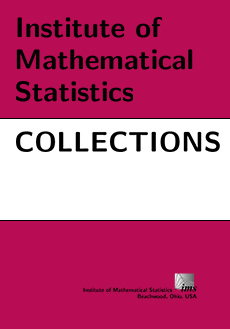Abstract
The estimation of a linear combination of several restricted location parameters is addressed from a decision-theoretic point of view. A bench-mark estimator of the linear combination is an unbiased estimator, which is minimax, but inadmissible relative to the mean squared error. An interesting issue is what is a prior distribution which results in the generalized Bayes and minimax estimator. Although it seems plausible that the generalized Bayes estimator against the uniform prior over the restricted space should be minimax, it is shown to be not minimax when the number of the location parameters, k, is more than or equal to three, while it is minimax for k=1. In the case of k=2, a necessary and sufficient condition for the minimaxity is given, namely, the minimaxity depends on signs of coefficients of the linear combination. When the underlying distributions are normal, we can obtain a prior distribution which results in the generalized Bayes estimator satisfying minimaxity and admissibility. Finally, it is demonstrated that the estimation of ratio of normal variances converges to the estimation of difference of the normal positive means, which gives a motivation of the issue studied here.
Information
Digital Object Identifier: 10.1214/11-IMSCOLL802


